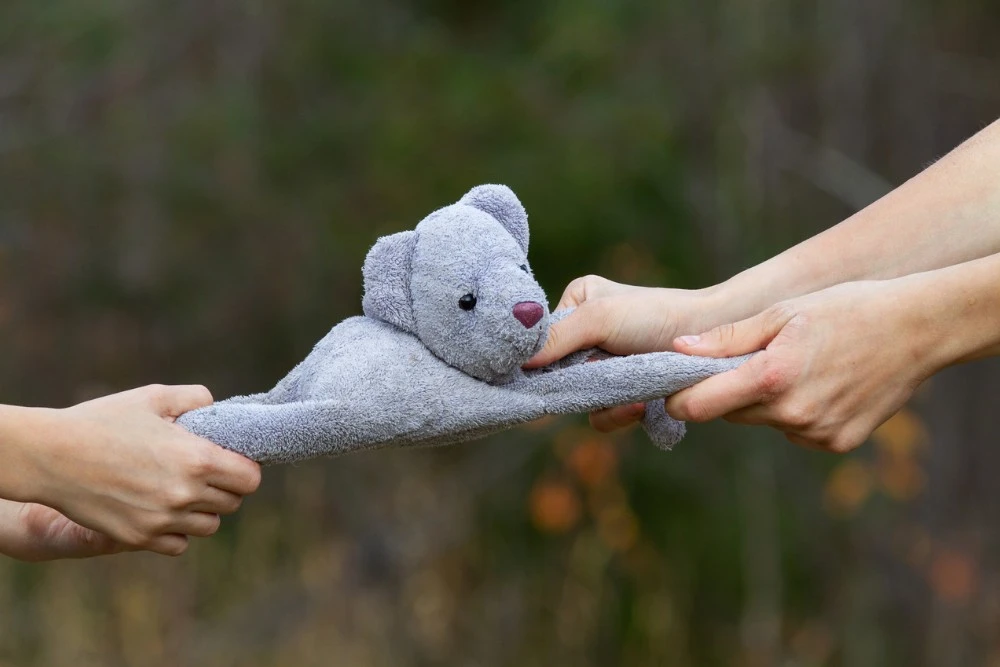The soundtrack of a busy household often includes giggles, playful banter, and… the unmistakable crescendo of sibling squabbles. Whether it’s a little tussle over a favorite toy, a disagreement about personal space, or simply a bid for attention, sibling rivalry is a common part of family life that can keep parents and nannies on their toes.
While it’s perfectly normal for siblings to have moments of disagreement, ongoing conflicts can wear on caregivers and kids alike. And because kids are home from school together, sibling rivalries can ramp up in the summer months, turning what was supposed to be a fun and relaxing season into one filled with stress. Here’s the good news: with a few helpful tips and a little patience, you can turn those squabbles into opportunities for growth and stronger sibling bonds!
Understanding Underlying Sibling Dynamics
Sibling rivalry is a common experience and can often be more about deeper feelings than outright dislike. It’s important to recognize that competition among siblings usually arises from emotions like jealousy or the need for more individual attention. Instead of just trying to manage the surface-level conflicts, digging deeper into those underlying emotions can be really helpful. By understanding what might be triggering these feelings–whether it’s a new sibling, perceived favoritism, or just the struggle to share–you can develop strategies that address the issues at their core. Here are some common causes of sibling rivalry to keep in mind:
- Competition for Attention: Children love to have their caregivers’ attention, and when they feel overlooked, they might act out for a little extra notice.
- Jealousy and Insecurity: The arrival of a new sibling or the feeling of favoritism can spark feelings of jealousy, making them more prone to conflict.
- Individual Needs and Temperaments: Every child has their own personality and needs. These differences can cause simmering tensions that eventually boil over into full-blown arguments.
- Limited Resources: Sharing toys, space, or parental time can become a hotspot for disagreements among siblings.
- Developing Social Skills: Siblings are often in different developmental stages. Their relationship is often the site of clumsy social interactions as kids learn how to engage with others appropriately. Even well-meaning sibling interactions can lead to ongoing misunderstandings.
Strategies for Handling Sibling Rivalries
Nannies and parents are essential in helping to navigate the highs and lows of sibling relationships. When it comes to sibling rivalry, there are plenty of practical strategies caregivers can use to create a more harmonious household. Here are some tips that might help:
Teach Conflict Resolution Skills
It’s never too early to start teaching conflict resolution skills! These skills not only help with sibling rivalries but also equip children with valuable life tools. Conflicts between siblings can be excellent opportunities to teach them about active listening, managing emotions, empathizing with others, and brainstorming solutions to problems. Encouraging kids to compromise, take turns, and say sorry can help them navigate all their relationships–not just with their siblings. One fun way to do this is by role-playing scenarios when things are calm. It can turn into a fun exercise rather than a chore!
Remember, kids learn a lot by watching you. By demonstrating calm and healthy ways to handle disagreements in your daily interactions, you’re showing them the right path. You can even guide them in expressing their feelings. Instead of saying, “Stop yelling,” try saying something like, “It sounds like you’re really angry. Can you tell me what’s bothering you using your words?”
It may seem counterintuitive, but it’s perfectly okay to let kids try to sort out minor conflicts on their own. This helps them develop and practice great problem-solving and negotiation skills! Just keep an eye on things and step in if the situation gets too heated or harmful.
Make Space for Individualized Attention
It’s truly amazing how unique each sibling can be! They often shine in different ways through their strengths, hobbies, or interactions with the world around them. For instance, one child might be all about sports and outdoor activities, while another might pour their energy into creativity and art. Some thrive in a classroom setting, while others love to learn through hands-on experiences. These differences can sometimes lead to sibling rivalry, so it’s essential to avoid comparing them to one another. Comparisons can unintentionally create resentment and insecurity, which we want to avoid!
To help each child feel recognized and appreciated as an individual, it’s crucial for parents and nannies to dedicate one-on-one time with each child. Creating a daily schedule together can ensure every child can explore their interests without feeling like they’re competing for attention. Even short moments of focused interaction can make a significant difference in how valued they feel. Celebrate their individuality to strengthen their bond as siblings!
Encourage Cooperation and Teamwork
Even if siblings have different interests, there are bound to be activities that they can enjoy together! Consider planning some fun outings or playtime that encourages positive interactions and shared experiences. Think about collaborative games or even simple household tasks where they can work together—these activities can be a great way for them to bond. Be sure to celebrate their teamwork and support for each other! As they build a deeper connection, they’ll learn to appreciate each other’s unique qualities and cheer each other on. Fostering this kind of relationship can create lasting memories and a strong sibling bond!
Establish Clear Rules and Boundaries
Parents and nannies should establish clear and consistent rules together, especially when it comes to sharing, respecting personal space, and understanding appropriate behavior. When everyone is on the same page, it creates a positive environment for the kids!
Fair and consistent enforcement of these rules helps everyone feel secure, and communication is the key. When parents and nannies chat regularly about how things are going, they can tackle behavioral issues together. If a nanny doesn’t follow the rules set by the parents, it can lead to confusion and little squabbles among the kids. Don’t forget to share any strategies that have worked well in the past! Teamwork between parents and nannies makes a world of difference in creating a happy, harmonious atmosphere at home.
Remain Neutral
It’s best to avoid taking sides or pointing fingers when siblings find themselves on different sides of an argument. Instead, try to understand each child’s feelings without any judgment. A simple phrase like “I hear that you’re both upset” can go a long way in helping everyone feel heard and valued.
Seek Additional Support If Needed
Sibling rivalry is often a natural part of growing up, but sometimes things can get a bit tricky. If you notice that the conflicts are affecting your family’s daily life or causing a lot of stress, consider seeking professional guidance. This added support can be essential if the arguments escalate to physical harm or lead to emotional distress for one or more of the kids. Talking to a child psychologist or therapist can be really beneficial—they can offer helpful insights and strategies to improve the dynamic between siblings. Remember, reaching out for help is completely okay! It shows that you care and want to create a happier, healthier environment for everyone.
The Unique Role of Nannies in Sibling Rivalries
Nannies play a vital role in a family, and they have a special insight into the dynamics between siblings. Kids often behave a little differently when their parents aren’t around, giving nannies a unique opportunity to pick up on any relational patterns that might indicate underlying tensions. This perspective can be so valuable! Nannies can have open conversations with parents about what they observe, working together to develop solutions that benefit everyone. Plus, since nannies can sometimes be seen as more neutral figures, they can effectively mediate disputes or challenges between siblings.
Remember, it really does take a village! Nannies can be positive role models for the children they care for. By instilling values such as respect, empathy, kindness, honesty, gratitude, and responsibility, nannies can help shape little ones into caring and thoughtful individuals as they grow.
Find Your Next Nanny with Jovie
Parenting is a big job, but you don’t have to tackle it alone! At Jovie, we’re all about connecting you with experienced nannies who genuinely care about helping kids build healthy and supportive relationships. Our nannies have expertise in childhood development, which means they’re prepared to handle sibling squabbles with skill and compassion. Plus, we take the time to personally match nannies with families, so you can rest easy knowing your kids are with someone who shares your parenting values. Whether you need a little extra help with behavioral support or just want a trustworthy adult around while you’re at work, Jovie is here for you. Find your perfect nanny with Jovie today!













